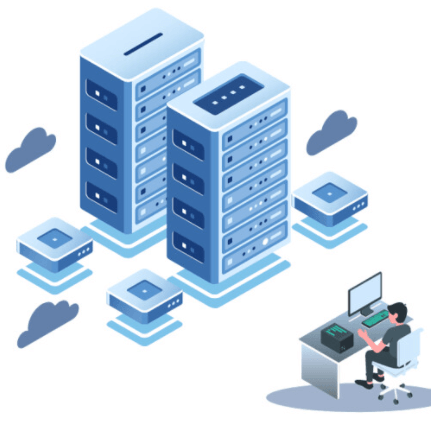Invest in a holistic technology, Invest in cloud ERP
The impact of COVID has not only been on the health of the population but on the global economy as well. Businesses that do not have a structured and simplified operational cycle suffered the most. Those that relied on their workforce for their mundane and repetitive tasks had to face a significant loss of revenue and consumers. This is why we suggest that there is no better time than now to invest in a cloud enterprise resource planning system.
In today’s blog post, we’re going to talk about how investing in effective cloud ERP system like Acumatica. It can boost your businesses productivity and efficiency, leaving you unburdened and giving you the freedom to focus on the core objectives of your business.
Let’s begin!
So, what is cloud ERP?
A one of its kind enterprise resource planning system, cloud ERP stores data on the cloud platform, which can be accessed by the authorized personnel over the Internet.
How is that different from the traditional on-premise ERP system?
- The biggest difference between the two is their deployment. While the on-premise ERP system is installed in the company’s server locally, the cloud-based ERP system is hosted on the Windows Server. It can be accessed through a web browser.
- Furthermore, deploying and managing an on-premise ERP system can be a tedious task. Furthermore, if you do not have technically adept professionals managing it, it soon might turn into a disaster. In a cloud-based system on the other hand deployment and management are not a headache. Thus the implementation is a quick process. Furthermore, it does not interfere with the business’s operation.
- Another major difference between the cloud ERP and the on-promise ERP system is how they are charged. Depending upon the size of the organization and the number of users you will have to obtain a license to implement an on-premise ERP system. Such is not the case with the cloud-based ERP system. Thus the organization can avail the service from an annual or monthly subscription.
Having pointed out the three major differences between cloud-based ERP an on-premise ERP system now let’s talk about the benefits of implementing a cloud-based ERP system:
- They can be easily deployed and implemented in your existing IT infrastructure.
- They require minimum to zero manual management or interaction. Thereby mitigating the possibilities of any error.
- With the ERP vendor managing the system you no longer have to worry about the upkeeping and updates.
- A cloud-based ERP can seamlessly manage this all without disrupting your business operational cycle. Thus From the finances, accounts, human resources, supply chain management, regulatory compliance, two materials handling everything will be managed.
- A cloud-based ERP system facilitates quick and easy data integration. Thus this assures maximum accuracy.
- A cloud-based ERP system has a centralized database. Thus you have the transparency and the power to make a well-informed decision it’s significantly enhanced.
- Right from high-speed implementation, periodic maintenance through easy management, the cloud-based ERP system ensures reduced operational cost. Thus you can invest the saved resources towards core objective of your business.
- It facilitates real-time data accessibility storage transfer and exchange to the authorized users. Thus your data is safe and secure.
- Regardless of the business location cloud-based ERP system empowers users to take decisions in a quick and efficient manner. Thus you will be able to make strategic decisions
Are you looking for a cloud-based ERP system?
Are confused by the number of choices you have, implement Acumatica.
Our industry experts at Tayana solutions can help you make a wise decision. Powered by a leading cloud-based ERP system, Acumatica, we have helped businesses of different sizes and scales deploy an efficient cloud-based ERP system, that enhances productivity and boost business efficiency.
If you wish to discuss this further reach out to Tayana solutions cloud ERP experts today!

